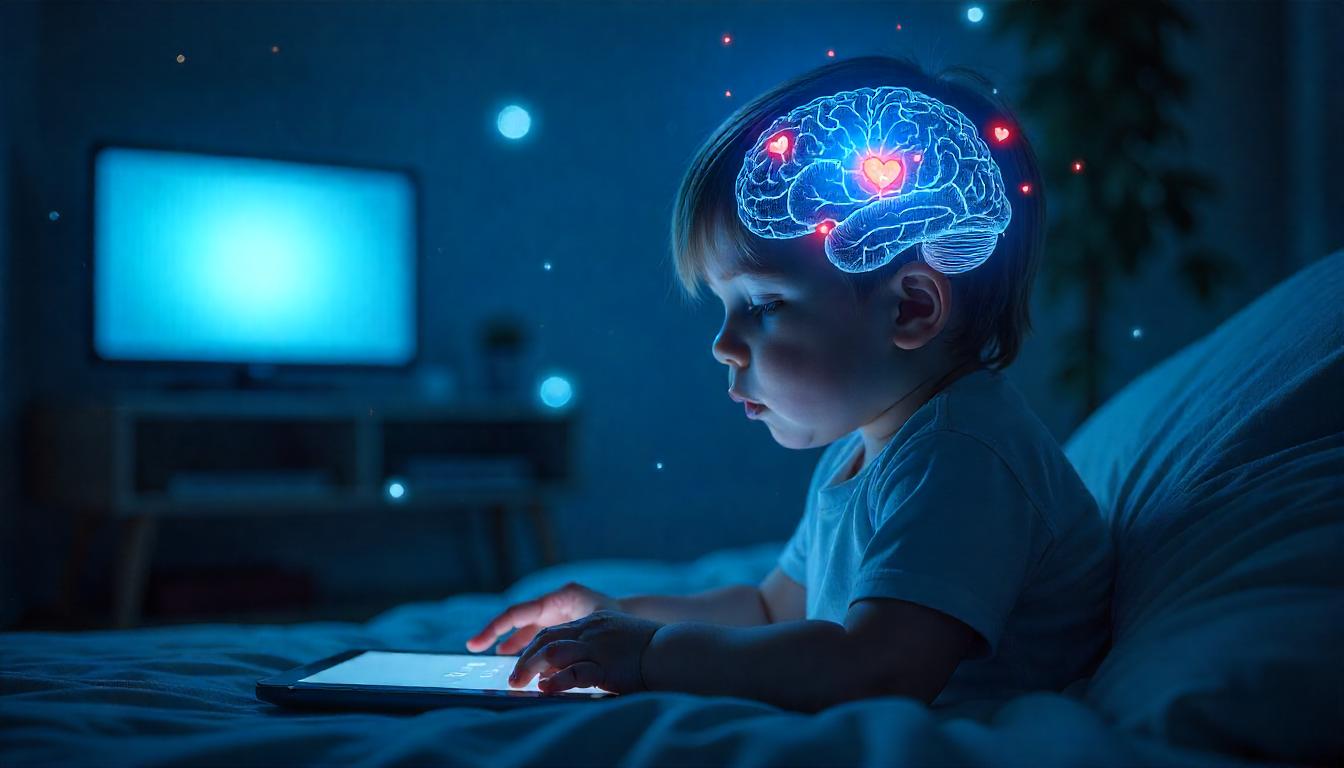More Than Just Growing Pains
It’s easy to dismiss your child’s mood swings, restlessness, or emotional withdrawal as just a phase. But when they can’t focus in school, struggle to sleep at night, and show no spark of joy even during play — it signals something deeper. Mental health challenges in children are rising sharply, and many parents are unaware of the hidden factors making their children emotionally numb and cognitively fatigued.
We’re not just talking about behavior; we’re talking about the silent erosion of mental well-being.
1. The Attention Crisis in Kids
Shortened attention spans are no longer just an adult issue. Children, exposed to rapid digital content and overstimulating environments, are losing the ability to stay focused on tasks that require patience or delayed gratification.
In Detail:
- Hyperactive behavior and low concentration levels are becoming normalized in classrooms.
- Excessive screen time triggers dopamine highs, making mundane school tasks feel boring.
- Even toddlers are showing signs of screen-induced attention disruption.
2. When Sleep Stops Being Restorative
Insomnia, nightmares, or disturbed sleep patterns are creeping into younger age groups. It’s not just about bedtime routines anymore — it’s about neurological overstimulation.
In Detail:
- Blue light exposure from screens suppresses melatonin production.
- Anxiety and emotional overload delay the body’s natural sleep rhythm.
- Lack of quality sleep further impairs mood, memory, and behavior.
3. Emotional Numbness: A Silent Red Flag
Parents often describe their kids as ‘checked out,’ ‘emotionless,’ or ‘robotic.’ This emotional blunting is often linked to chronic overstimulation, trauma, or unhealthy coping mechanisms.
In Detail:
- Kids stop expressing emotions to protect themselves from overwhelm.
- Continuous exposure to distressing media can desensitize emotional responses.
- Emotional regulation requires mental space — a luxury overstimulated children don’t have.
4. It’s Not Hormones, It’s the Environment
While puberty plays a role in emotional volatility, external environmental factors are amplifying the issue. From food additives to noise pollution and digital stress — today’s children face a different world.
In Detail:
- Processed foods disrupt gut-brain signaling.
- Exposure to digital violence creates low-level trauma.
- Constant comparison through social media crushes self-worth.
Unbelievable 1: “Joy Deficiency Is Real”
Children are meant to be joyful, curious, and spontaneous. But when you see your child go days without laughter or light in their eyes, it’s a deeper issue than shyness or introversion.
In Detail:
- Joy requires emotional safety and presence.
- Children living in high-pressure, performance-based homes may suppress joy to “fit in.”
- Long-term suppression of joy leads to apathy and depression.
Unbelievable 2: “Your Child Might Be Burnt Out”
Yes, burnout isn’t just an adult issue anymore. Academic overload, extracurriculars, digital pressure, and lack of restorative play are all part of the equation.
In Detail:
- Burnout in children manifests as apathy, chronic fatigue, or defiance.
- They may withdraw socially or say they feel “tired all the time.”
- Recovery requires intentional lifestyle changes — not just vacations.
The Silent Collapse of Childhood Joy
Your child isn’t just distracted — they’re drowning in a world that constantly overstimulates and undernourishes their emotional needs. What used to bring joy — playtime, laughter, connection — is being replaced with numb scrolling, instant gratification, and restless nights. Their nervous system is stuck in overdrive, and they don’t know how to come down. And most heartbreaking of all? They think this is normal. The slow disappearance of spontaneous happiness in children today is not a phase — it’s a warning.
When the Brain Forgets How to Rest
Sleep isn’t just for rest — it’s for memory consolidation, emotional regulation, and growth. When a child can’t sleep, their brain can’t reset. Processed foods, screen overexposure, and the constant dopamine spikes hijack the body’s natural circadian rhythm. Over time, this leads to chronic fatigue, irritability, and emotional disconnection. You’re not just dealing with bedtime tantrums — you’re witnessing a brain in burnout mode, running on fumes.
Future Prediction: A Generation on the Brink
If current trends continue, we’re looking at a generation that may struggle to form deep human connections, exhibit emotional detachment, and rely on external validation to feel worthy. Children may grow into adults with underdeveloped emotional intelligence, addicted to stimulation but numb to meaning. Unless we take back control — through food, tech boundaries, and emotional reconnection — we won’t just lose childhood. We’ll lose the very essence of what it means to be human.
FAQs
Q1: How can I tell if my child is emotionally numb or just quiet?
Look for signs like loss of interest in activities they once loved, absence of facial expression, or flat tone when speaking. It’s more than shyness — it’s detachment.
Q2: Can digital content really affect sleep and focus that much?
Yes. Digital media affects dopamine cycles and sleep hormones, disrupting both attention span and circadian rhythm.
Q3: Are these problems reversible?
Absolutely. With the right interventions — better nutrition, reduced screen time, therapy, mindfulness — many children can recover fully.
Q4: Should I consult a doctor or therapist?
If you notice persistent mood, focus, or sleep issues for more than 2-3 weeks, professional guidance is highly recommended.

